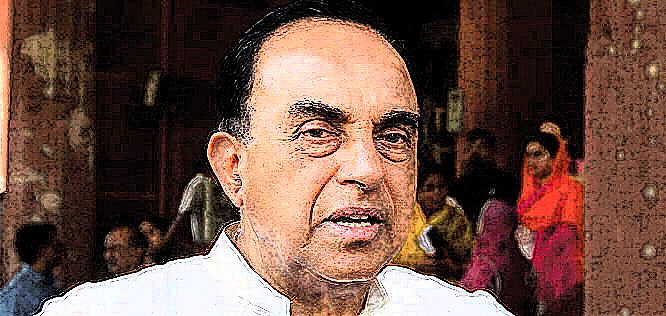The threat to democracy and freedom today does not arise from some external agency; it emanates from within and, like termites, tends to undermine liberty—that “delicate fruit of a mature civilization” (Acton). The threat is like the mythical Ichchadhari Nag or Nagin, which can acquire any shape. One day, it is the sanskari censor board, the next day it is the beast called ‘party discipline.’
With the tussle between Rajya Sabha member Subramanian Swamy and Finance Minister Arun Jaitley becoming more direct, political commentators and public intellectuals are getting worried over the declining standards of public discourse, the infighting within the ruling dispensation, the need of decency in political life, and (above all) the importance of party discipline. Demands are made to initiate action against Swamy for violating party discipline. Therefore, it is important to scrutinize the beast that has become a totem of contemporary Indian democracy.
Has party discipline always existed and is it good?
Let’s begin with the Congress. In 1938, Vallabhbhai Patel expressed his opposition to Mahatma Gandhi’s decision to propose Subhas Bose’s name for the party’s presidency. Next year, Bose insisted on another term. This was opposed by Gandhi as well as Patel. In fact, Gandhi and Patel ensured the creation of an environment conducive for Bose’s exit from the party. Such actions would surely not pass the standards of contemporary party discipline.
After Independence, too, voices of dissent have been public expressed by Congress leaders over subjects as diverse as the contours of economic policy, Hindi, and China. Again, very bad examples of party discipline.
Similarly, the plethora of socialist parties in the past—that is, till they became family enterprises of people like Mulayam Singh Yadav and Lalu Prasad Yadav—were known for, and suffered from, publicly expressed differences over crucial issues. Even in the rigidly regimented parties like that of communists, ideological issues have often brought out their difference in the open. CPM leader and the then West Bengal chief minister Jyoti Basu said in 1996 in an interview that his own party had committed a “Himalayan blunder” by not letting him accept the office of prime-minister.
In developed countries, party discipline, as we know it in India, is practically non-existent. For instance, British Member of Parliament and former Mayor of London Boris Johnson is the leading proponent of Brexit, even as his party colleague and BJP Prime Minister David Cameron is in the Remain camp.
In the US Congress, Republicans voting against a Republican president and Democrats against a Democratic president is not uncommon. Which is exactly as it should be in a liberal democracy. For lawmakers, as representatives of people, are supposed to take decisions in the best interests of their constituents and not in accordance with the whims and fancies of party bosses.
The tragedy of Indian democracy is that people have become so accustomed to visibly obsequious behavior, to invertebrate existence in politics that they have practically forgotten that democracy is meant for free men and women, not toads and toadies. A monstrosity was conceived over three decades ago; in the name of ensuring stability, the anti-defection law was brought in. It effectively brought the elected representatives of people under party managers’ thumb.
It is astonishing that few in India have noticed not only the enslavement of democratically elected leaders by ‘high commands’ but also the obscenely anti-democratic terms like ‘whip’ and ‘chief whip.’ Parliamentarians and state legislators are ‘whipped’ to follow the party line. Could anything be more illiberal?
The law was made even more stringent—that is, even more anti-democratic—when in 2003 the precondition for a valid merger of a party was hiked from one-third to two-thirds. Which meant even greater control of the high command over the party. And guess what! It was Arun Jaitley, the party manager par excellence, who was law minister at that time.
“Freedom is never more than one generation away from extinction,” former US president Ronald Reagan said. In our country, freedom in the political arena has not only become extinct but even its idea has also been forgotten. This suits the political managers who want parties to become their fiefdoms. They and their sheep cry incessantly—party discipline, party discipline, party discipline. The fact is that party discipline is the beast that is devouring Indian democracy.
